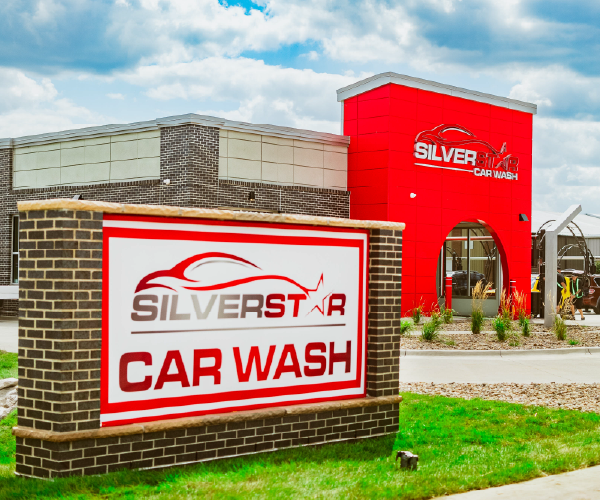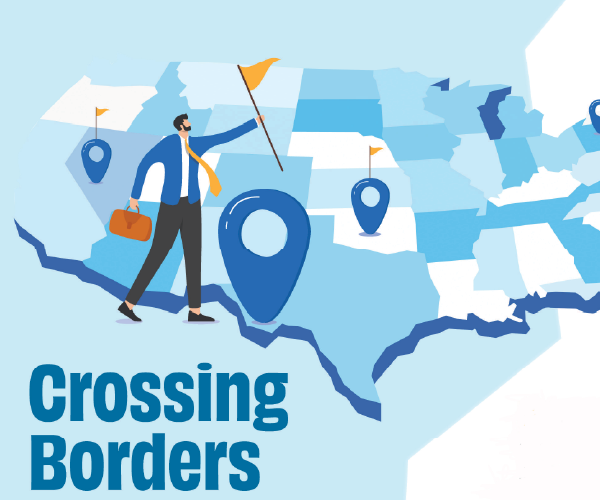
Are Daily Deals Right for Your Business?
April 1, 2013
9 minute ReadWhen Jessie Burke, owner of Posie’s Café in Portland, Ore., ran her Groupon promotion, she should have been thrilled with the more than 1,000 customers it attracted. However, after three months of redeeming the Groupons, the success of the promotion nearly bankrupted her business.
“Over the six months that the Groupon was valid, we met many, many wonderful new customers, and were so happy to have them join the Posies family,” wrote Burke in an online essay about her experience. “At the same time we met many, many terrible Groupon customers… customers that didn’t follow the Groupon rules and used multiple Groupons for single transactions, and argued with you about it with disgusted looks on their faces or who tipped based on what they owed.”
While many small businesses like Burke’s have daily deal horror stories they share, Groupon is going through financial woes as well. With declining cash flow and less than expected quarterly results as well as the departure of the company’s founder, Groupon is not a Wall Street favorite at this time. However, analysts point out that business decisions such as the company’s venture into e-commerce, to compete with Amazon and other online retailers, may be the reason for the company’s financial troubles as opposed to its daily deal business. In fact, some analysts believe companies that focus on daily deals are a viable business model, and even though the daily deal market is saturated, companies that provide good service to businesses and purchasers will survive.
Richard Chemel, vice president of JustDeals.com, a startup in the discount site market, believes consolidation is the next step in the industry. “For the biggest players such as Groupon, LivingSocial, Gilt City and others, consolidation is likely to occur in the market, as competition continues to grow,” he wrote in an article for Upstart Business Journal. “Companies with a broad range of available deals and discounts such as LivingSocial might look to combine with a more niche deals provider in order to focus on perhaps a higher margin area.”
Internet-based discount sites offer consumers significant savings for restaurants, spas, entertainment venues, auto service companies and, yes, even car washes. The common theme of each salesperson’s pitch is that a 50 percent discount on your service will attract new customers who will purchase additional services once they arrive. The new customers can also become long-term customers.
Chemel warned that for service industries, the margins can be steep and retaining customers can be tricky. “Many consumers simply ‘deal hop’ to find the current discount, and are only drawn to be a repeat customer if the service provided is truly extraordinary.”
At William David Salon in Alpharetta, Ga., owner Noelle Larson uses daily deals to generate traffic to her new stylists who are trying to build their clientele. “My daily deal special states that the discount applies to select stylists,” she said. “This keeps my established stylists’ schedules open for their customers and fills the schedules of stylists who need clients.”
Larson not only offers incentives for customers to buy additional hair services but she now offers incentives to promote return customers. “My stylists offer an additional service at a discount, if the client purchases it at the same time she is in the salon for the daily deal service,” she said. “Stylists and staff at the front desk also try to book the next appointment before the client leaves by offering a $25 discount if the appointment is booked within six weeks of the original service.” The new incentive has resulted in 75 percent of the daily deal clients booking another appointment, which is a significant improvement compared to previous daily deals.
Daily deals can also be used to attract customers during typical slow business months, according to Greg Sands who owns and operates more than 20 auto repair shops under the America’s Service Station, Service Street and Driver’s Auto Repair banners. “If you know you have some months that are slower than others, daily deals can bring in business you wouldn’t normally have, but be sure you are not losing money,” he said. This requires knowing your costs and being prepared to offer quality service. “Our services are more expensive than car wash services, so I can’t count on upselling our customer and most just purchase the oil change I’ve offered. I do, however, closely track daily deal customers to see if they do purchase other services or if they return for other services after the discount is used.”
In the study, “How Businesses Fare With Daily Deals As They Gain Experience: A Multi-Time Period Study of Daily Deal Performance,” Utpal Dholakia, a professor of management at Rice University examined performance of daily deals using survey data from 641 small- and medium-sized businesses. Data was collected for three time periods for all study participants: April to May 2011, October 2011, and May 2012.
Businesses that run multiple daily deals are more likely to earn a profit from the deal as well as repeat customers, according to study findings. While less than half of the businesses running their first daily deal report profitable promotions, three-quarters of those running seven or more deals report profits from these promotions, Dholakia said. The percentage of businesses making money jumped by about six percentage points in the May 2012 sample — from 55.5 percent (May 2011) to 61.5 percent, he added.
UNDERSTAND CHARACTERISTICS OF CUSTOMERS
One of the most common complaints about promises made by daily deal businesses is the inability to turn the discount shoppers into long-term customers. Assaad Rahal, owner of Superkleen Hand Carwash in South El Monte, Calif., has tried several different tactics, including offering a three-wash deal. “The three washes must be purchased in a three-month period,” he explained. By giving customers a reason to return to his business more than once, he increases the likelihood of keeping the customer.
The use of different daily deal companies also increases the opportunity to reach different groups, pointed out Rahal. “My experience is that Groupon attracts customers more focused on discounts and less likely to remain loyal,” he said. “AmazonLocal attracts customers 30 years and older, who like a good offer but will come back for good service, even without a discount.”
While the promise of new customers is attractive, be aware of the potential pitfalls, said Bob Klein, chief strategy officer for Blue Chip Marketing Worldwide. “The greatest disaster of the daily deal is not being able to provide the service due to volume,” he said. “If you sell hundreds of discounted car washes and customers are faced with long lines, overworked and grumpy employees, and poor quality as employees try to rush cars through the line, you create negative word-of-mouth.” Not only does the poor service for the daily deal alienate your potential new customers, but your existing customers may get caught in those long lines as well.
And as the adage goes, you only have one chance to make a first impression. “Even if you normally provide good quality, you get a reputation for poor quality because this is the only time these customers visit your business,” Klein said.
Be ready for increased exposure if your service isn’t quality, warned Sands. Daily deal customers are more likely to post online reviews, negative and positive, about their experience with a business than other customers. “Not only are daily deal customers cost conscious, they are also very Internet savvy,” he said. “Even if you give good service, their expectations might not be realistic, so be prepared to see negative feedback online.”
EVALUATE COSTS
Another consideration is cost of the discount. In addition to requiring the discount to be 50 percent of normal cost, the daily deal company can collect up to one-half of the amount paid by the customer and often charges the business owner credit card fees incurred in the transaction. This means that a $10 deal for a $20 service will net an owner less than $5 per wash. Be aware, too, of the company payment policies. Some companies pay once a month for redeemed coupons while others pay within seven days of receiving the redemption report.
However, with proper planning and a clear vision of business objectives, a car wash owner can enjoy success with a daily deal, said Klein. Approach the use of a daily deal as you would any marketing tactic by understanding and defining business objectives. “For example, define how many new washes you want to create in a certain number of months and determine who you want to attract,” he suggested.
Once objectives are set, it’s time to negotiate with the daily deal company. While most companies require an offer that is 50 percent of full price, a business owner can set parameters that improve the likelihood of meeting business objectives. Not only can you limit the number of discounts sold, but you can also set a limit on how long the deal is offered for sale.
To address the cost issues of using daily deals, Sands recommended negotiating the fee charged by the company. “Some companies, like Groupon, will negotiate and others will not, but it is worth your time to ask the company to adjust their percentage to 25 to 40 percent instead of 50 percent.”
Rahal’s deal followed the 50 percent discount policy by Groupon. “I did not make money on the wash; I just counted it as the cost of advertising,” said Rahal. “I did make money on the snacks, drinks, air fresheners and other items the customers bought while they waited for their cars.”
The fact that daily deal customers are price-conscious is one way to start building a long-term relationship if the owner is willing to invest the effort to collect contact information, suggested Sands. “Offer daily deal customers a chance to sign up for e-mail or mailing lists for future discounts,” he said. “They will expect good discounts but by controlling the timing, pricing and distribution of the discounts, you can control costs. And, you don’t have to split the revenue with Groupon, LivingSocial or any other daily deal company.”
KNOW REDEMPTION RULES
Three hundred discounted washes were sold in less than 24 hours when Chad Dubbs, owner of Ultimate Car Wash & Express Lube in Belvidere, Ill., tried Groupon. He set the 300 limit to control the volume of people visiting the car wash as well as potential loss of revenue for each wash. “I did not specify a time period that the discount had to be used, so I didn’t have a rush of customers in the same week,” he said. “This made it possible to handle the discount customers that did show up.”
The lack of a timeframe, however, did raise another issue that Dubbs had not considered. Groupon sets an expiration date for the deal, even if the business owner does not. This means that if a customer shows up to redeem the discount after Groupon’s expiration date, the owner can choose to honor the discount as offered or credit the customer with the amount they originally paid. For example, if a customer paid $10 for the deal, Dubbs could give them the $20 wash but charge them the additional $10.
However, Dubbs points out that this process was not clearly explained to him, especially the fact that Groupon does not pay the owner for any deals redeemed after the Groupon expiration date. “I chose to honor the deal because I did not have too many coupons come in after the expiration date, and they were within two weeks of the expiration,” he said. “I believe it was more important to keep the customer happy than to argue about a few dollars.”
Dubbs has two people primarily responsible for initial contact with customers in the wash line. “They are both paid on commission, so they are motivated to upsell every customer,” he said. The combination of additional services sold and increased awareness helped Dubbs meet his objectives. “About 60 percent of the daily deal customers upgraded their service, and I heard from other customers who told me they did not even know we were here before they saw the deal.”







